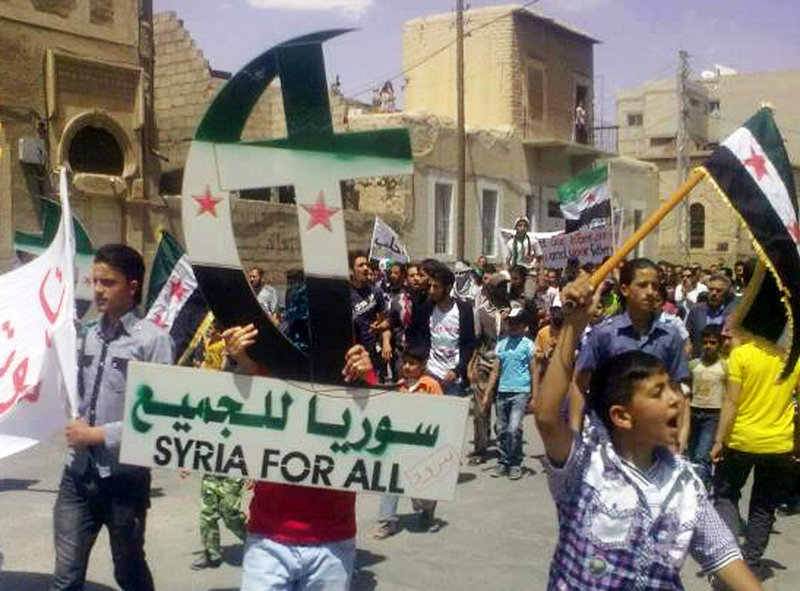BEIRUT – Gunmen fired rocket-propelled grenades and machine guns early today in intense street battles in the Lebanese capital, wounding six people as fears mounted that the conflict in neighboring Syria was bleeding across the border.
The fighting appeared to be among the worst clashes in Beirut since 2008. The battles erupted hours after an anti-Assad cleric and his bodyguard were shot dead in northern Lebanon.
Lebanon and Syria share a complex web of political and sectarian ties and rivalries, which are easily enflamed. Last week, clashes sparked by the Syrian crisis killed at least eight people and wounded dozens in the northern city of Tripoli.
The revolt in Syria began 15 months ago, and there are fears the unrest will lead to a regional conflagration that could draw in neighboring countries. The U.N. estimates the conflict has killed more than 9,000 people since March 2011.
Sunday’s fighting in Beirut pitted pro- and anti-Syrian Sunni groups. Gunmen were roaming the streets and several roads were blocked.
Lebanon’s state-run National News Agency said gunmen were using “bombs and machine guns” and that six people were wounded.
The apparent trigger for the fighting was the shooting death of Sunni cleric Sheik Ahmed Abdul-Wahid and his bodyguard in northern Lebanon. The circumstances surrounding their deaths remain unclear, but the NNA said they appeared to have been killed by soldiers after their convoy failed to stop at an army checkpoint.
The Lebanese army issued a statement, saying it deeply regretted the incident and that a committee will investigate.
The fighting underscores how the bloodshed in Syria, where President Bashar Assad’s regime is cracking down on an uprising against his rule, is enflaming emotions in its tiny neighbor Lebanon. Lebanon has a fragile political faultline precisely over the issue of Syria.
There is an array of diehard pro-Syrian Lebanese parties and politicians, as well as support for the regime on the street level. There is an equally deep hatred of Assad among other Lebanese who fear Damascus is still calling the shots here. The two sides are the legacy of Syria’s virtual rule over Lebanon from 1976 to 2005 and its continued influence since.
The fighting was among the most intense in Beirut since May 2008, when gunmen from the Shiite Hezbollah militant group swept through Sunni neighborhoods after the pro-Western government tried to dismantle the group’s telecommunications network.
More than 80 people were killed in the 2008 violence, pushing the country to the brink of civil war. There was no sign that Hezbollah was involved in the latest violence.
In Syria on Sunday, a roadside bomb exploded in a suburb of Damascus as senior U.N. officials toured the area, the latest incident in which the unarmed observer mission has nearly been caught up in the country’s bloodshed. The blast detonated about 500 feet away from visiting U.N. peacekeeping chief Herve Ladsous and Maj. Gen. Robert Mood, the chief of U.N. observers in Syria.
Send questions/comments to the editors.



Success. Please wait for the page to reload. If the page does not reload within 5 seconds, please refresh the page.
Enter your email and password to access comments.
Hi, to comment on stories you must . This profile is in addition to your subscription and website login.
Already have a commenting profile? .
Invalid username/password.
Please check your email to confirm and complete your registration.
Only subscribers are eligible to post comments. Please subscribe or login first for digital access. Here’s why.
Use the form below to reset your password. When you've submitted your account email, we will send an email with a reset code.